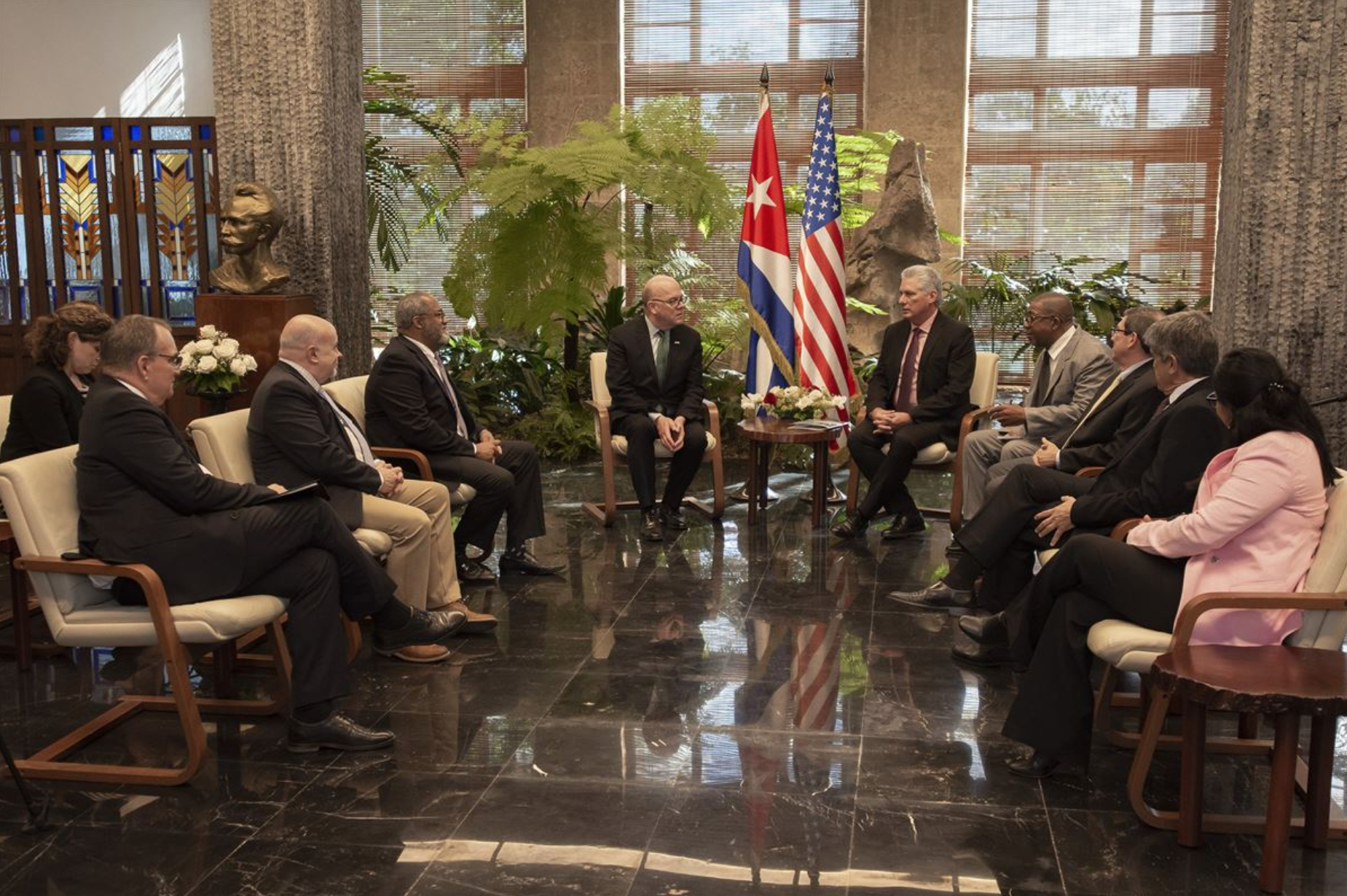In the current international context, three possible foreign policy alternatives are open to the leadership of the Cuban state: alignment with Russia and China; non-alignment, and alignment with the United States. However, the third is the only realistic one.
Alignment with Russia and China
There is a difference between the current global powers confronting the United States and the defunct Soviet Union: pragmatism in the defense of the national interest played a role in Soviet foreign policy, but it was not the determining factor. The Union of Soviet Socialist Republics had a universalist political conception, according to which all human beings and all countries, by the historical laws of socio-economic development, were moving toward a single common destiny. Thinking of themselves as the most advanced on that path, they felt ethically obligated to anyone who asked them for help in advancing along it. It did not matter whether the requester was within their sphere of influence or not.
On the contrary, today’s China does not put its supposedly universalist ideological vision before its national interests, interpreted from strict criteria of economic-financial profitability. As for Russia, its ideology is openly imperialism. The ruling elites of both superpowers do not propose any common project or destiny to the rest of human beings; they only seek to position themselves in an imperialist hierarchy of global powers. In the immediate future, what they seek is an area of influence that the other superpowers will respect; in the hope, at least in the case of China, that in a more distant future they may dream of planetary hegemony.
To expect, starting from Cuba, that Russia or China will maintain a relationship similar to the one it once had with the defunct Soviet Union, is to fail to understand the profound difference between this multipolarity and the one that preceded it. Not only can we not expect the same in terms of material, know-how, or financial aid, but even in terms of political and military support.
With much imagination, Cuba could only expect similar support from either of the two global superpowers that challenge the United States. hegemonic power for as long as the United States continues to refuse to accept the division of the world into spheres of influence. Once the U.S. accepts that division, other people’s spheres of influence will be religiously respected… and Cuba certainly belongs to the U.S. sphere of influence.
Aligning with Russia or China does not guarantee anything to Cuba, not even to the post-Castro elites. In due time, the powers will negotiate with Washington to move toward a world divided into three areas of influence. In that way, Cuba will only be left with being the “backyard” of the United States.
Non-alignment
The Cold War took place in a highly ideologized context, in which the two great centers of power accepted Woodrow Wilson’s principles of international coexistence: the inviolability of borders and, at least in theory, the sovereignty and independence of the states within them. In the end, they were more than two states struggling for world power, two conceptions of society and the economy that disputed with each other for the heart and will of all human beings, who should therefore be allowed a certain capacity to make decisions.
The new context of international relations openly proposed by Moscow, but also by Beijing, is very different. The current superpowers are unlikely to go any further in the immediate term, to the elimination of independence or to a massive shifting of borders. Firstly, because of the weight of traditions of respect for national sovereignty inherited from the 20th century, but, above all, because both Russia and China are ethnically very homogeneous units with a strong interest in remaining so.
However, within their areas of influence, or what they consider as such, neither these superpowers nor the United States will be as permissive as the superpowers of the previous Cold War were. States such as Brazil or India will undoubtedly maintain a substantial degree of political and economic independence, but this will not be the case for the small ones, such as Cuba, Belarus, or Burma, located next to the current superpowers.
We are referring to the abandonment of idealism and the return to political realism in international relations. The return of the old nineteenth-century policy in which direct intervention was simply based on a national interest that was not disguised by idealistic declarations. Of the return of the right of force, without pretense. Because what the current challengers to the hegemony of the United States, or even an important sector within American politics itself, are proposing is nothing other than an agreement to divide the world among the strong, in which the opinion of the weak is not relevant.
And, in this context, to think that non-alignment can be used, at least for those states that are clearly part of the strategic area of the great powers, is nothing more than an illusion.
In any case, whether Cuba succeeds in pursuing a foreign policy of non-alignment will depend on the goodwill of the U.S. and its determination to remain committed to Woodrow Wilson’s international principles. If the United States were to finally accept the idea of zones of influence, Cuban independence would be nothing more than a fantasy. But even if the U.S. resisted the trends of the times, its geographic but also demographic proximity to Cuba would not allow it to accept a non-allied Cuba.
Alignment with the United States
The reality is that Cuba can only align itself with the United States, and even not remain in a simple diplomatic alignment, but seek to get closer economically or politically as much as possible.
The economy, the culture, the demographics, and its historical evolution, all push Cuba to align itself with the United States. This tendency is so strong that there is a possibility that the Castro regime itself, after the disappearance of the last remnants of the historical generation, may be dragged along by it.
*Translated from Spanish by Janaína Ruviaro da Silva













